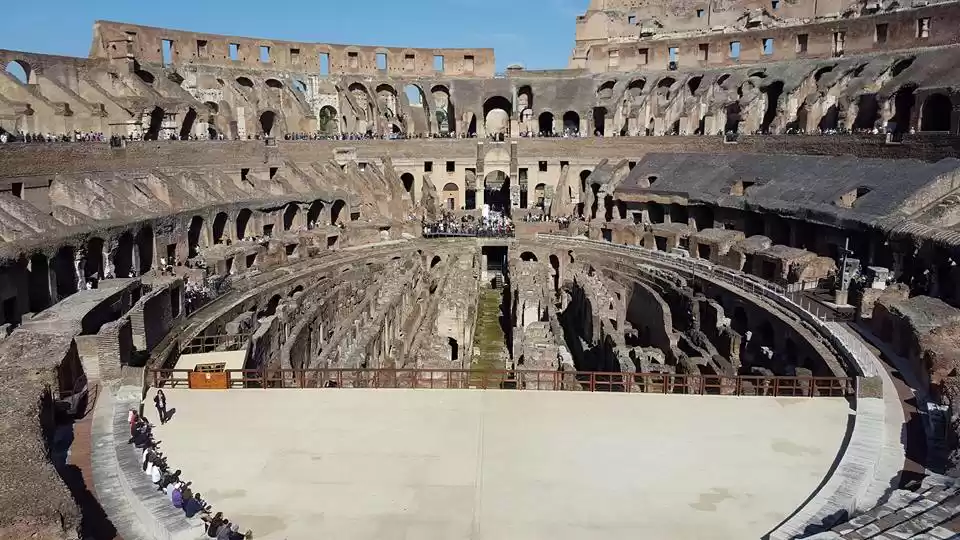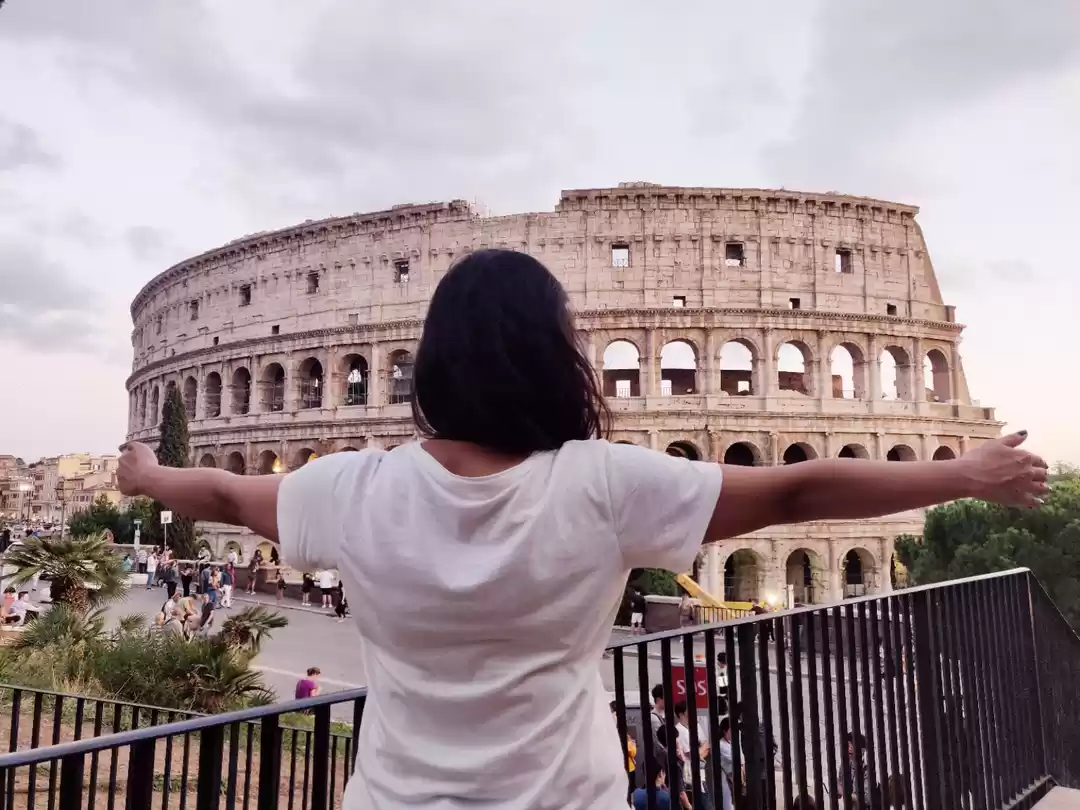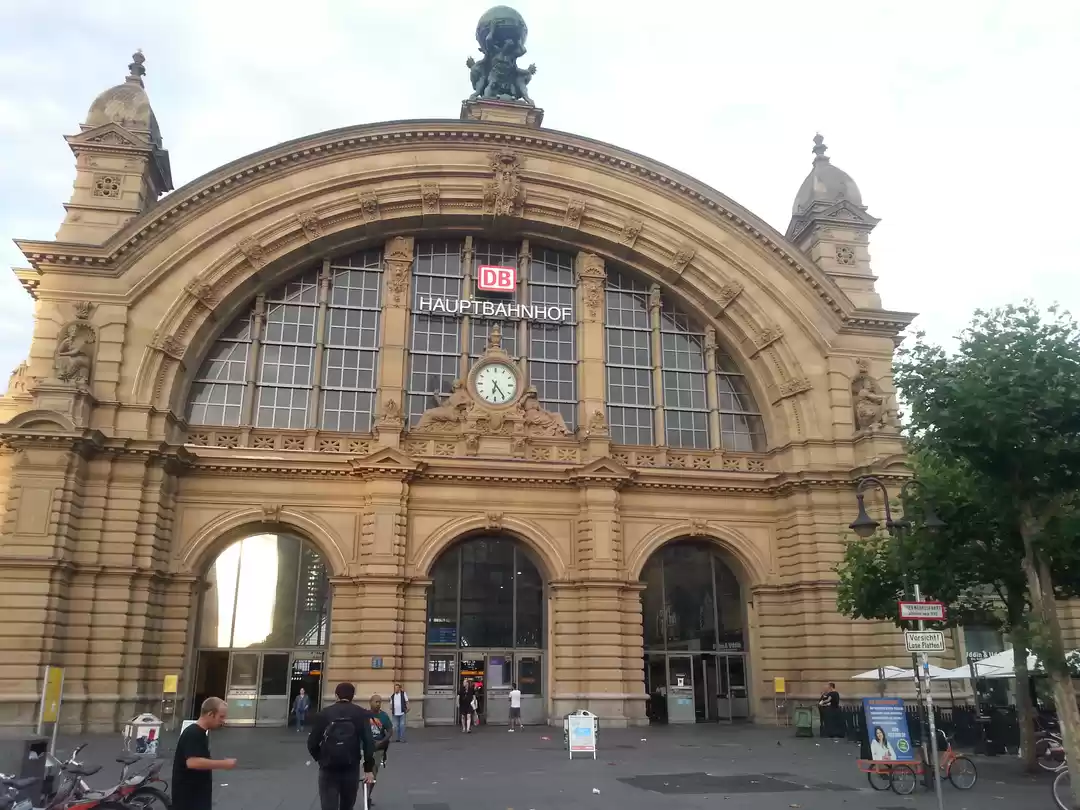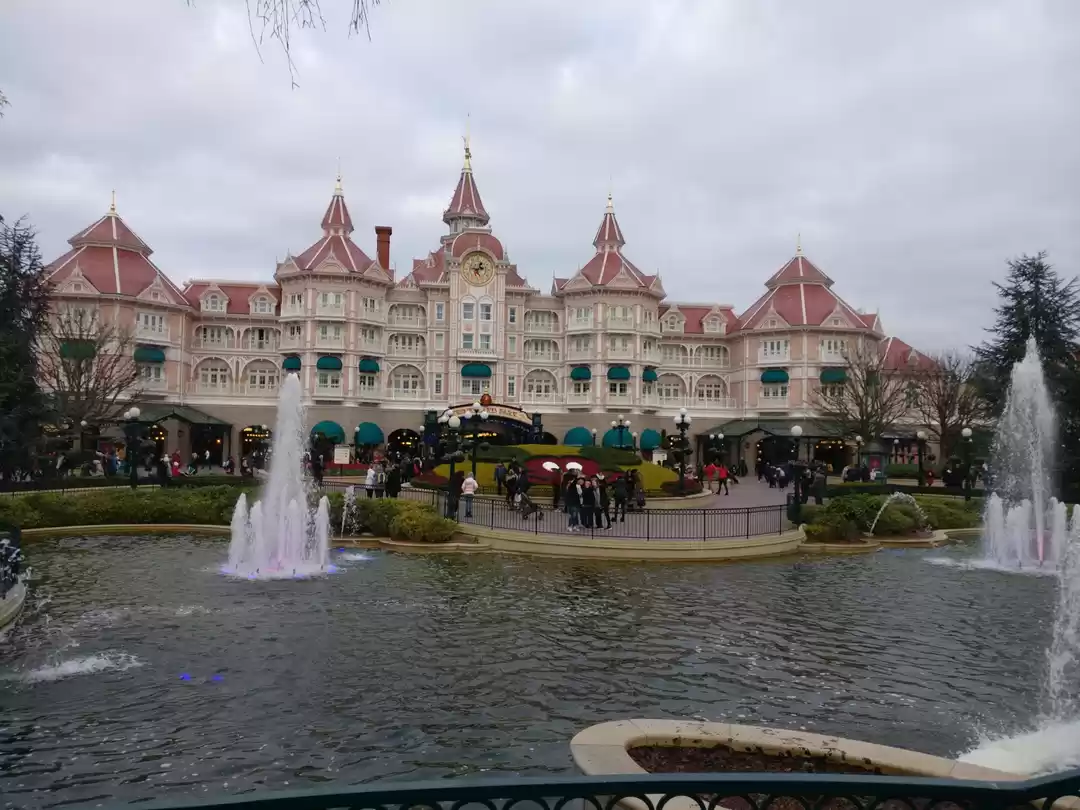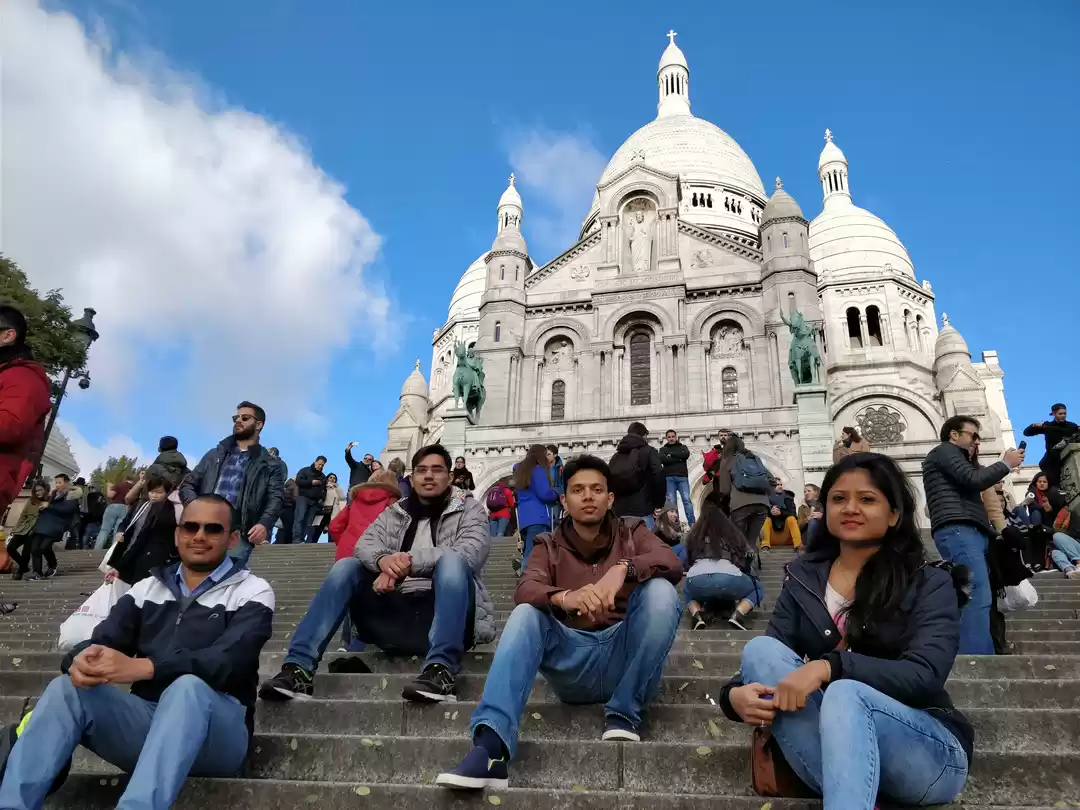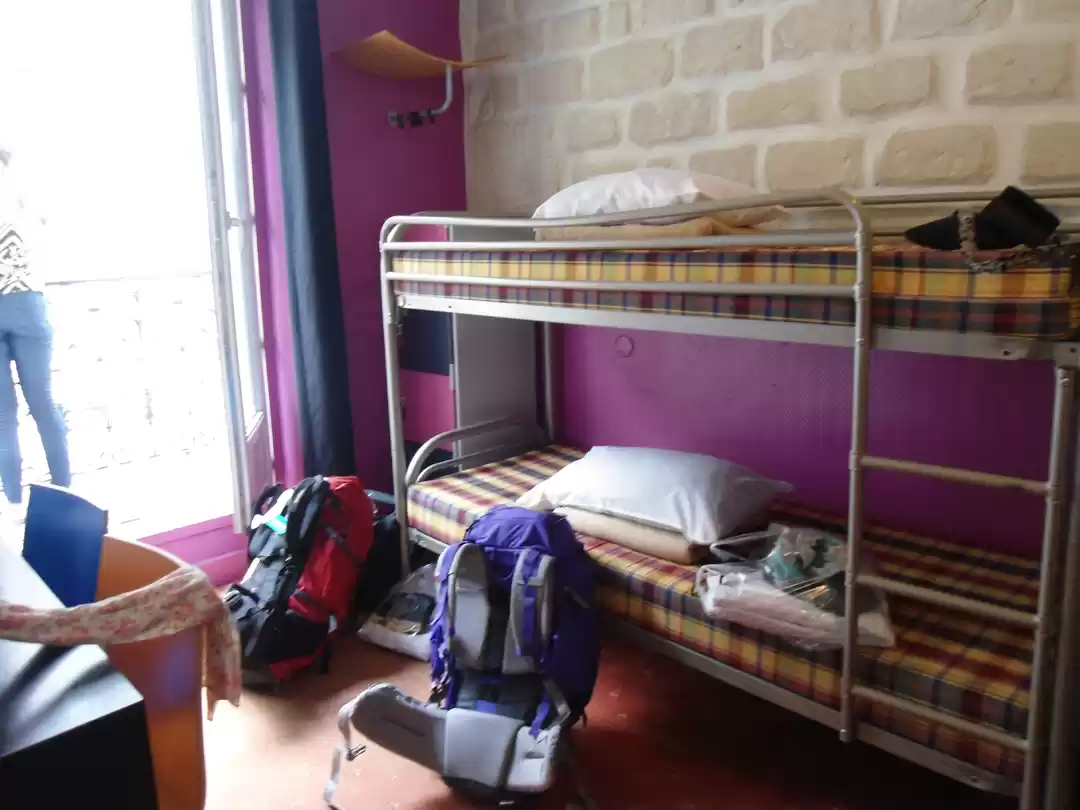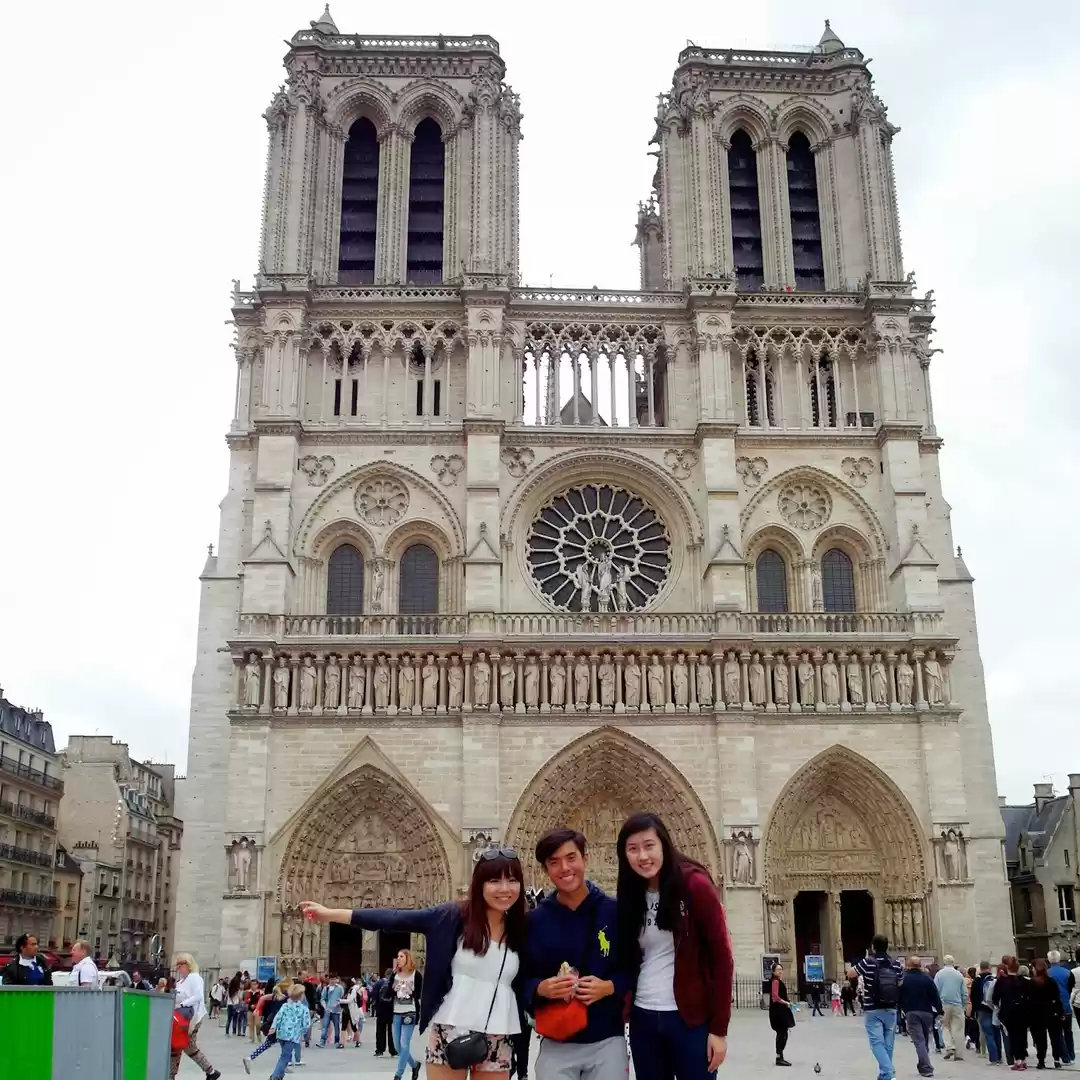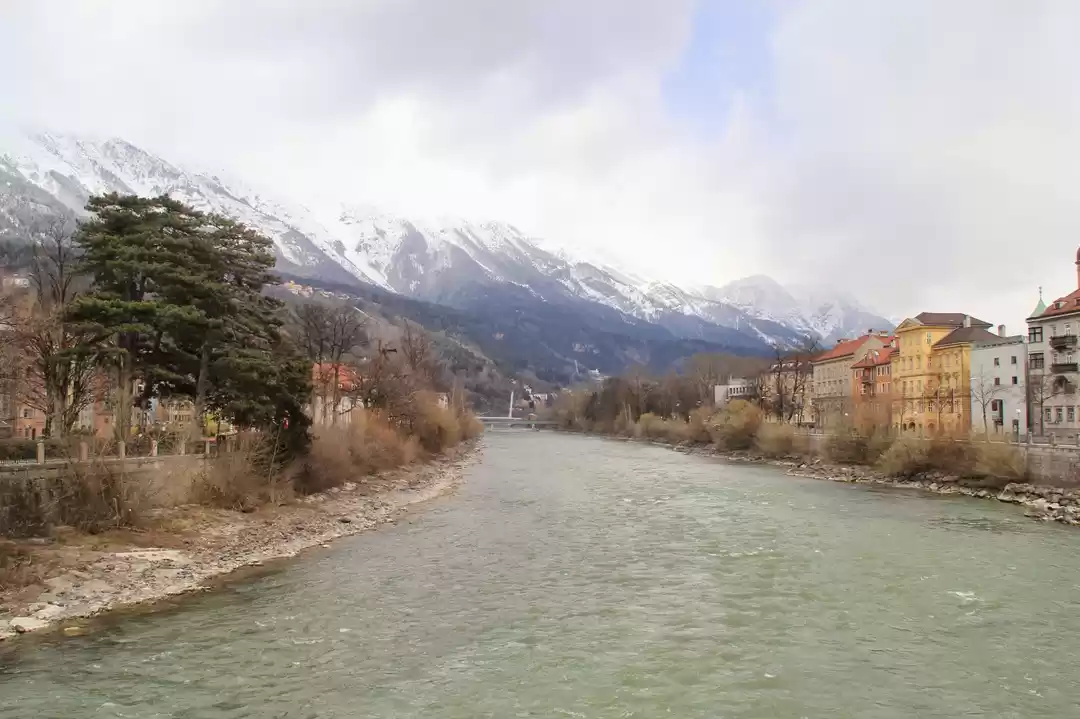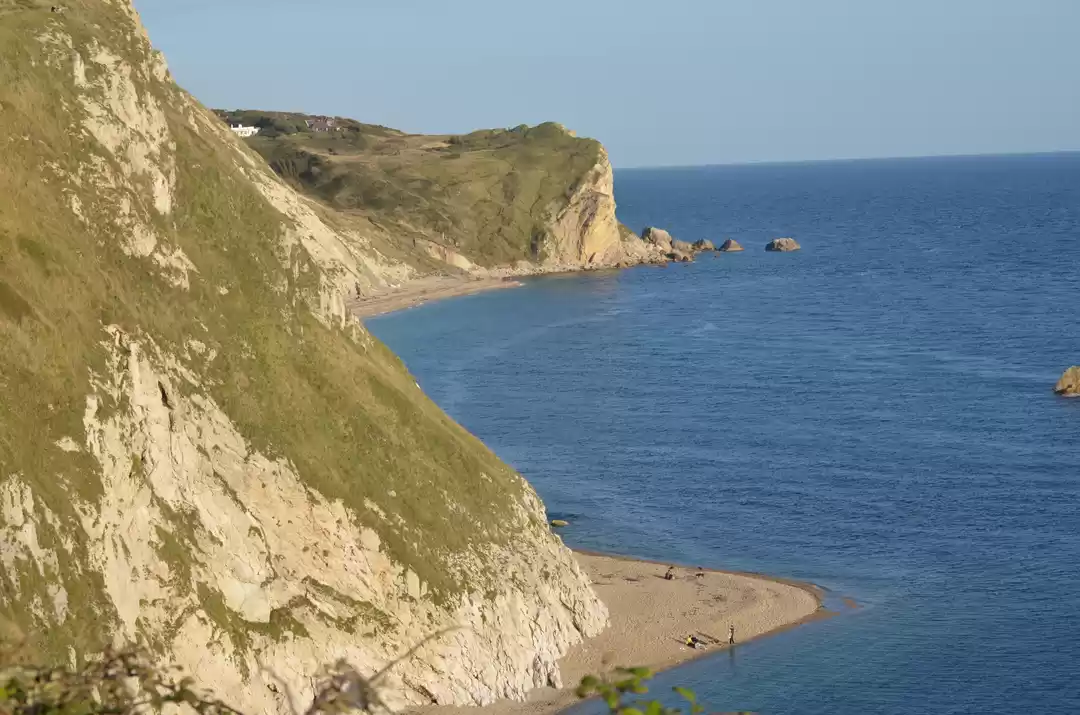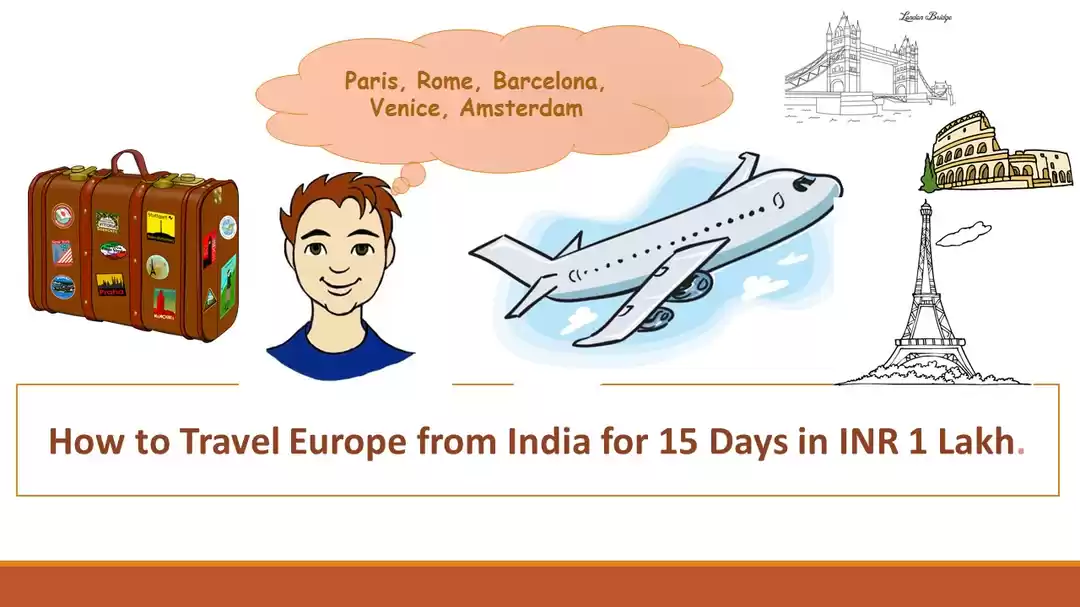
With one Eurotrip successfully completed and another one in the pipeline, I thought I must pen down the tiresome yet fulfilling experience of planning your own trip. It involves a lot of effort, commitment, and time, however once all goes well, it gives you an overwhelming sense of achievement and happiness. I love planning as much as I love seeing my plans transform into actions. I'm lucky that my husband loves travelling just as much. Although he does not bother much with the planning part, I'm glad that he listens to me patiently and gives me absolute freedom to organize all aspects of our trip.
In my opinion, a budget trip does not mean that you need to compromise on things you wish to do or experiences you wish to live. It involves saving a few bucks on the essentials and spending these savings to your heart's desire. With some research and a little bit of prior planning we managed to save on things like travel and accommodation and gladly converted this into happy experiences and lifetime memories.
Booking an organized tour is a hassle-free option which sometimes may turn out to be cheaper too. But being bound by a fixed itinerary is something that both of us did not want. So we gave ourselves the tedious task of doing everything including travel, accommodation and visa on our own. Moreover, the excitement you build up for the trip while hand-picking every detail is absolutely enriching.
Although planning a trip at this scale is highly subjective and depends a lot on the interests, time available, and budget, a rough To-Do list that may help you in planning that perfect Eurotrip is:
1. Pick the Time and Duration
This was not applicable to us as we planned both our trips around my husband's official trips. This saved us money on his tickets as compared to planning a fresh trip.
Europe is famous for numerous events and festivals all year round so by self-planning you have the freedom to include any of your interests in your trip dates. In the summer months the entire continent is extremely crowded with click-crazy tourists flocking all your dream destinations. On the other hand, the harsh European winters are a bit too cold for Indians to handle. So you have to find a sweet spot between these two and make the decision. Our first visit was in September and we had pleasant weather throughout the trip. The next one is planned this November so we're all set for some gloomy winter days.
Although no one in their right mind would want their vacation to end, all good things must in fact come to an end. The length of your trip is entirely a personal choice. Being over-worked corporate slaves we could not afford much time but managed to make the best of whatever time was available. Our first trip was 8 days long and the upcoming one lasts 11 days.
2. Pick the Destination(s)
With a vast network of international airports and an unbeatable intra-continent travel network, no destination is too far. You can reach the remotest snow clad locations in the Alps or small fishing villages on the Mediterranean coast thanks to the efficient transportation system. Even if you pick the busiest mega-cities of Europe like Paris and Rome, you can manage to have a good time if you avoid the tourist traps and take the path less travelled.
For our first trip we chose Paris, Brussels, Bruges, Amsterdam and Rome. For the upcoming trip we have zeroed in on Salzburg, Munich, Prague, and Krakow.
Although some may like a relaxed vacation, we are more of the wandering type and wanted to cover as much ground as possible. Taking full advantage of Europe's open border policy and the (multi-country) Schengen visa, we decided to pick cities to visit in different countries. We planned on spending a maximum of 2 days in each city to witness the essence of all the different cultures Europe has to offer. This extremely tiresome yet amazingly fulfilling itinerary worked for us but may not suit everyone. Well that's where the beauty of self-planning emerges. You can plan to spend the entire duration of your trip at one location (this will help you save on travel costs) or happily hop through cities and countries along picturesque settings.
With the entire continent unfamiliar to us, we were not very particular of what cities to visit. The choice was purely based on the criteria of hassle-free transfer between the destinations. A little time invested in research helped us get the best deals for travel within Europe and we covered our journeys by road, rail, and air.
3. Book the Tickets
Once the cities are decided, it’s time to shell out the big bucks. The major expense would definitely be the tickets into and out of Europe. I found that tickets to and from the major airports are a lot cheaper than those to the smaller cities.
For the first trip I flew to Paris from Delhi and my husband arrived from Toulouse after his one week long work trip. We spent 2 days in Paris and took a bus to Brussels. After spending a day here we took a train to Bruges. We spent 2 days in this charming city and then took a bus to Amsterdam. After 2 days in this wild yet lovely city we took a flight to Rome. From Rome we flew back to Bangalore with a brief stop at Delhi where we met family.
For the second trip we are flying in to Paris together. Having already covered Paris on the previous trip, we are spending the first day in Versailles which is famous for its beautiful palace and is a convenient train ride away from Paris. We have booked an overnight bus from Paris to Salzburg which helps us save on a night's accommodation as well. We are spending 2 days in Salzburg after which we travel to Munich by train and spend 2 days there. Then we proceed to Prague where we spend two days. We have booked a night bus from Prague to our last destination Krakow. After 2 days in Krakow we fly back to Paris. I am flying back from Paris to Bangalore with a day in Delhi and my husband proceeds to Brussels and then Toulouse for work.
Since we booked well in advance (around 3 to 5 months) we got great airfares and cheap bus and train tickets. Please note that some bus and train fares open for booking 3 months in advance only. And you get amazing deals as cheap as 1 to 5 € (less than INR 400) on the opening days. So to save on travel costs it is important to time your bookings accordingly.
For the first trip, booking a return trip from Bangalore was not feasible as our in and out destinations were different. Even though for the upcoming trip we fly in and out of Paris, I found better deals while booking separately.
A return trip flight from Bangalore to Paris and Rome to Bangalore combined cost us ~ INR 44K (Air India) for the previous trip and this time with perfect timing and a stop in the middle east we've managed to keep it under ~ INR 35K (Saudia & Air India).
I was pleasantly surprised to learn that travel within Europe is extremely cheap. Let's compare it to rates back home. A one way flight from Bangalore to Delhi seldom costs less than INR 4K and a night Volvo AC bus from Bangalore to Hyderabad is INR 1300. We booked our flights within Europe for ~ INR 3K and bus and train tickets at INR 300 to INR 1000.
Some other things to note:
* All prices quoted are per person
* Flight tickets are cheaper if you do not book hold luggage
* Trains are much more expensive than busses
* Train stations and bus stations are well connected by local transport
4. Book the Accommodation
With confirmation on where you are headed, you now need to worry about where you would dwell. I was equally amazed at the exorbitant hotel prices as I was at the low travel fares. A cousin of mine had recommended Airbnb from her previous trip to Paris so we thought to give that a try. We ruled out hostels as a private room for 2 in a hostel did not offer any saving. Dorm beds were quite cheap though but we did not want to opt for that.
Airbnb was very convenient for us and we were super happy with the prices and loved the freedom to choose from different neighbourhoods while meeting our budget. We took advantage of the excellent metro/rail/bus/tram network in the European cities while making our bookings. This helped us save on costs by living in non-touristy places and also gave us some peace and quiet as city centres are often notorious for being full of rowdy locals/immigrants at night. We had set a limit of ~ INR 4K on daily accommodation and easily met it with Airbnb.
We had a great experience and luckily got good hosts. Some offered free breakfast and some picked us up from the train station. It was a pleasant change from hotels as we got a chance to live with the locals. Our hosts also gave us experienced recommendations and city maps for reference. The Amsterdam hosts even offered us their 2 bikes which we rode to Zaanse Schans windmill village.
In the first trip, we booked all our stays with Airbnb except for Bruges where we got a cheaper hotel deal. For our upcoming trip in November we found amazing hotels at extremely low prices (maybe due to the off season) so we booked the hotels 3 months in advance. In Salzburg we decided to go with Airbnb based on our convenience but in Munich, Prague and Krakow we have booked great 4 star properties in the heart of the city and with breakfast included in about INR 2-3 K a night.
Some other things to note:
* Airbnb reviews and pictures give you a great way to judge the location as well as the host. So however cumbersome it may be, always and always go through the reviews of listings you are planning to book.
* Hotels are generally stricter when it comes to early check in or late check out. Some Airbnb hosts may adjust on this, but make sure to give prior information while booking or before reaching.
* Always contact the hosts before you reach their place to fix up time and get info on location. We could not contact our Brussels hosts a day in advance and they did not stay at the place which they had let out. The confusion left us stranded on their street on a rainy night. We had to look for a restaurant, request for wifi access and then could finally contact the hosts and meet them at the Airbnb listing. All's well that ends well but contacting your host before reaching is something you must remember.
* Read about the Flexible, Moderate and Strict cancellation policy of you Airbnb host and take decisions accordingly.
* Many hotels offer luggage rooms which allow you to leave your stuff after checkout generally free of cost or at a small price.
* All major train stations have luggage storage facilities which can be used in case of odd check in and check out timings
All done .... ?!? Well, not even close .... !!
You still have a long way to go. Visa appointments have to be booked. All documents are to be sorted for the visa application. Daily sight-seeing is to be roughly planned. Forex is to be bought. And then you’re good to go.
It’s not as tedious as it sounds. Everything is easily doable and we enjoyed doing it all on our own.
Watch out for Part 2.














